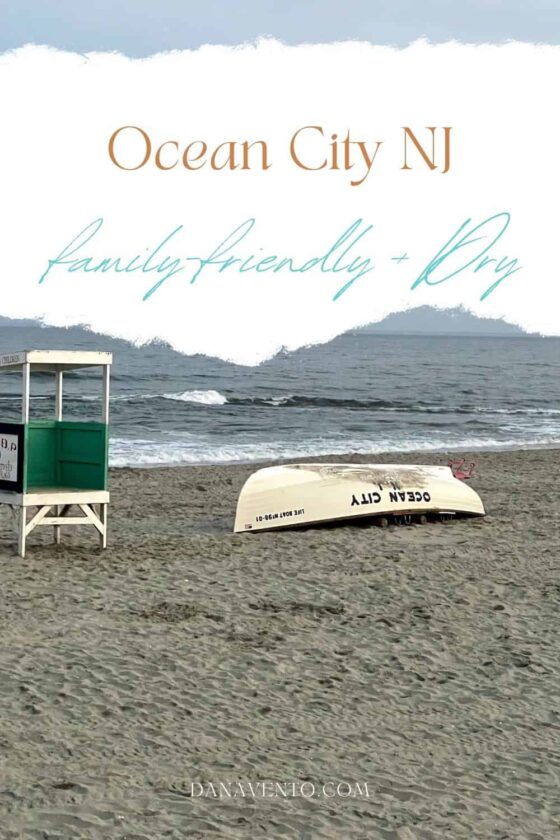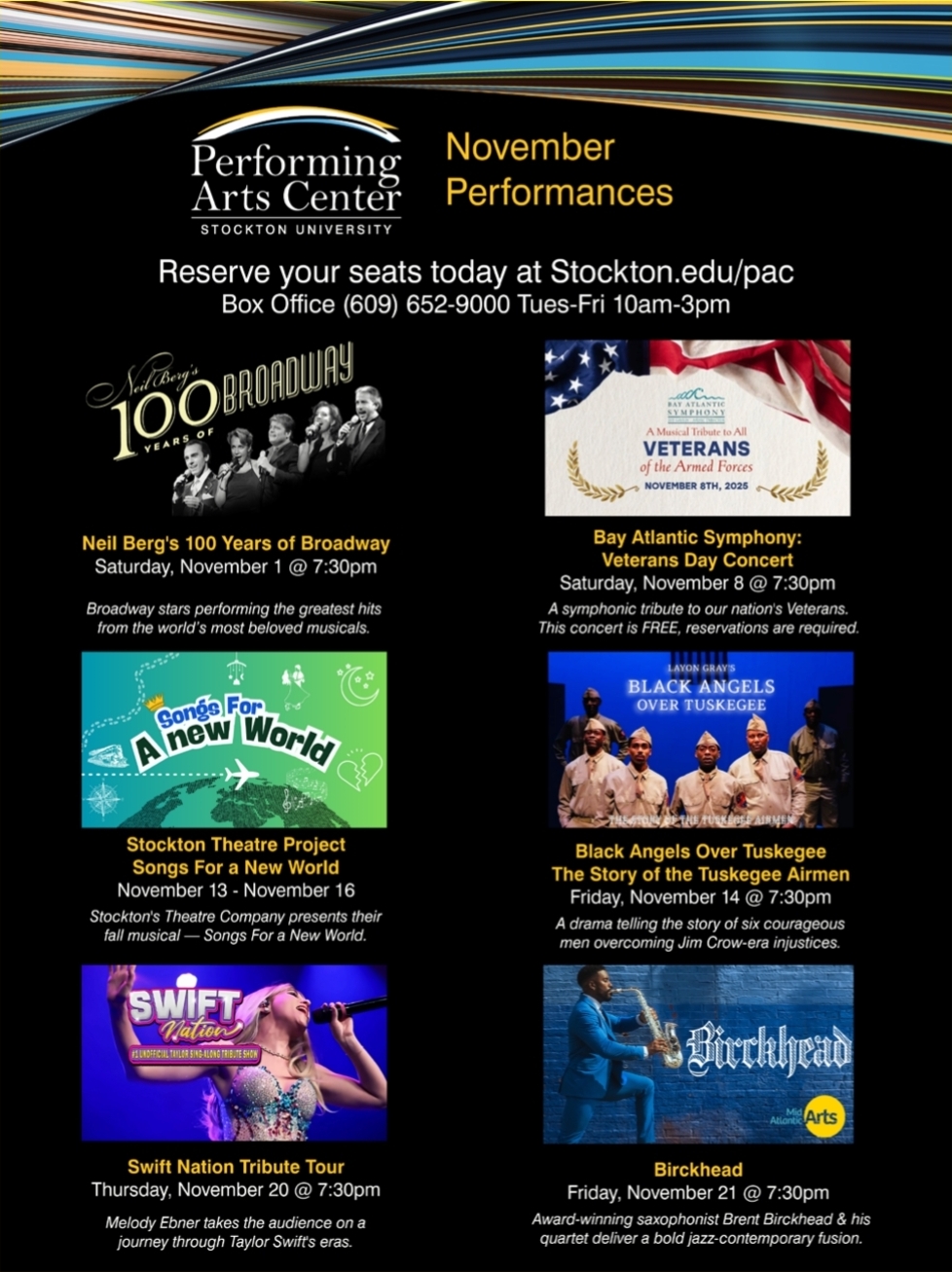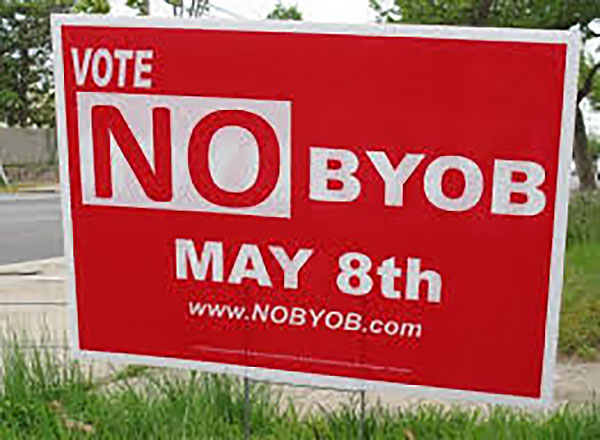There are dozens of cities, towns and municipalities throughout the country where the sale of alcohol is prohibited. In Pennsylvania alone, it’s been reported that over 2,500 municipalities are “dry,” to one degree or another. In this area the best-known dry town is Ocean City. By law it’s been sans alcohol sales since 1909, and by custom a lot longer.
In 1879, four Methodist ministers met under a cedar tree on Sixth Street and Asbury Avenue to discuss the formation of what they called the Ocean City Association. The four had just purchased Peck’s Beach, which amounts to the entirety of today’s Ocean City, from John Somers.
The association’s mission was to create a Christian seaside resort, with the focus on clean and sober living. As there was no municipal government yet, their rules about alcohol were their own – inspired by faith, enforced by deed restrictions and societal norms, not by direct legislation and law enforcement.
In 1881, the Ocean City Association enacted a series of “blue laws,” which, among other things, officially prohibited the sale and public consumption of alcohol within the community. They also banned business activity of almost any kind on Sundays, a rule that would spark a heated political controversy more than a century later.
Although blue laws were established before Ocean City formed an official municipal government in 1897, and thus only carried the authority of the association, they became the foundation for the city’s public policies that maintain its status as a dry town to this day.
In 1909 the Ocean City municipal government made the community’s stance against alcohol official by enacting an ordinance prohibiting the sale and manufacture of alcoholic beverages within city limits, codifying the earlier restrictions set forth by the Ocean City Association and establishing the city as officially dry.
In 1915, the Ocean City Women’s Christian Temperance Union emphasized the point when they donated a public fountain at Ninth Street and Asbury Avenue in front of City Hall. The idea was to promote drinking water instead of booze.
By the time the Volstead Act and Prohibition took effect in 1920, putting into effect the 18th Amendment to the Constitution, Ocean City had been officially dry for 11 years, but there were problems with enforcement.
Reputed Philadelphia bootlegger Max “Boo Boo” Hoff bought acres of marsh between Ocean City and Upper Township for liquor-running operations, according to the Press of Atlantic City. Like other Jersey Shore locales, Ocean City’s beach and bay were regular shipment points for rumrunners bringing contraband ashore. It’s also been reported that law enforcement in Ocean City raided 27 illegal taverns where alcohol was sold or consumed in 1929.
After the repeal of Prohibition in 1933, all turned peaceful once again in Ocean City. But that wasn’t the final chapter of the liquor story here.
A local law passed in 1951 prohibited the delivery of wholesale merchandise on Sundays, and forbade the consumption of alcohol on beaches. Seven years later, in 1958, Ocean City passed a ban on drinking alcohol in public places. Not surprisingly, there have been several attempts to repeal some or all of the alcohol restrictions through the years. All have failed.
It’s a different story for the blue law rules operating simultaneously with the alcohol ban. These, reflecting the city’s origins as a religious retreat, prohibited almost all commerce on Sundays, maintaining it as a day of rest for observing observe the Sabbath.
In 1986, a referendum to repeal Ocean City’s 1881 blue laws – excluding the alcohol component – came up for a vote, spearheaded by the Ocean City Merchants Association who objected to the loss of business for being closed for half of every weekend. A vigorous advertising campaign opposing the repeal was launched, arguing that repealing blue laws might result in a lifting of the liquor sales ban.
An all-out battle ensued, splitting the “non-partisan” city in half, with the Ocean City Merchants Association and business community on one side, the Ocean City Tabernacle Association raising the specter of bars on the Boardwalk, and local media reaping the dividends in the form of advertising dollars.
The referendum succeeded, the blue laws were repealed and Ocean City was open for business on Sundays while remaining alcohol-free. The vote was close, however. Only 591 separated the yeas and the nays.
Some 26 years later, in 2012, a proposal was floated to repeal a 1984 law that prohibited BYOB alcohol consumption at the city’s restaurants. It was soundly defeated, as almost 70 percent of voters opposed the idea.
The overwhelming majority of residents continue to be proud of the family-friendly reputation that sets America’s Greatest Family Resort apart from other Jersey Shore spots.
“That’s what keeps us visiting,” said one Shore Patch website reader. “We love that it’s a dry town. We have taken our kids for years, and now that we have grandkids, we will continue to visit.”
Last September, Ocean City City Council laid to rest any notion that the city would be changing course on the question of alcohol sales.
“Quashing rumors that a liquor license could be part of Ocean City’s future, City Council unanimously approved a resolution Thursday reaffirming its support for the city’s existing laws prohibiting alcohol sales,” wrote Donald Wittkowski, editor of OCNJ Daily. “Since the city’s foundation and incorporation, Ocean City has remained steadfast in opposition to the public sale, possession, or consumption of alcohol. The City Council considers this matter to be of significant interest and wishes to declare its intentions.”
Consider that the trunk of the cedar tree, which previously stood at the Ocean City Tabernacle, and where the four ministers had their faithful meeting in 1879, resides today in a place of honor inside the Ocean City Historical Museum. It’s part of the city’s heritage.

Still, the ban is not total. There is a loophole in state law, detailed in these pages last season, that allows restaurants and businesses classified as “private clubs,” to permit members to drink alcohol.
Qualifying establishments, and there are several in Ocean City, including the Flanders Hotel’s 1923 Supper Club, must have proper licensing, and only members are permitted to drink. Some residents have gone on the record opposing the arrangement, but for the foreseeable future things will stay as they are, as they have for the past 146 years.
A local real estate agency, The Local Connect Real Estate Group, has used the unique alcohol situation in Ocean City as a selling point in its printed literature. Addressing the issue, Connect wrote, “For families, Ocean City’s dry status reinforces its reputation as a peaceful, family-focused destination. It’s a perfect spot to unwind without the distractions of nightlife, but its proximity to towns with alcohol sales ensures flexibility for visitors.”
And a lot of people in Ocean City feel the same way.
Bruce Klauber is the author of four books, an award-winning music journalist, concert and record producer and publicist, producer of the Warner Brothers and Hudson Music “Jazz Legends” film series, and performs both as a drummer and vocalist.


















